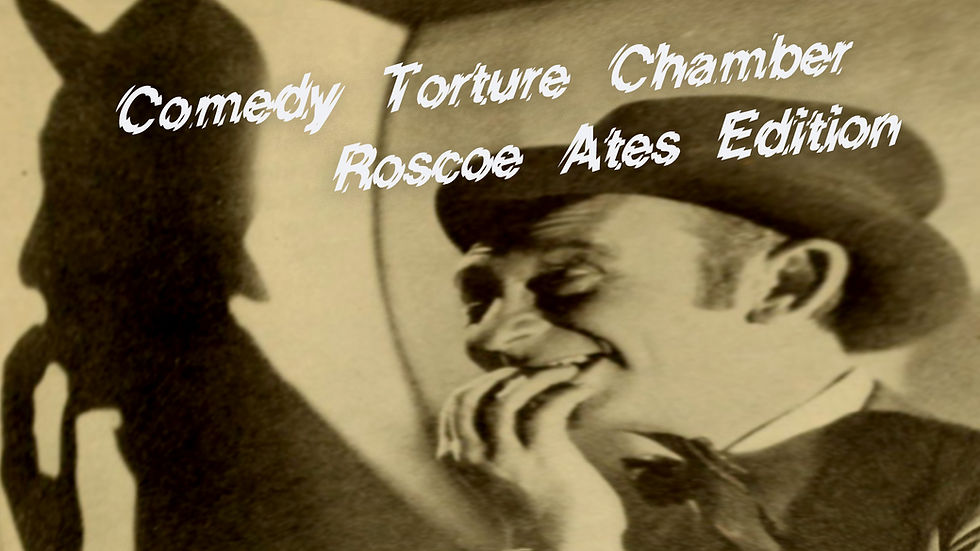
I get these cravings for a very particular type of movie. Just recently, this urge led me into my film closet where I keep a beat up 16mm print of a film that I thought might scratch that itch.
It’s a harrowing picture; a portrait of a lost soul adrift in an indifferent world. Wilbur, a destitute man with a neurologic disability, ascends to the top of a building, preparing himself for a swift demise. The letter he has written to his wife details his financial hardships. He steps out on the ledge, peers down at the cars below, and says his final words—
“One for the m-m-m-money, two for the sh-show, and threetoget-threetoget-threetoget-threetoget-threetoget…”
Then suddenly a German Shepherd yanks him down off the ledge by his robe and chases him into the penthouse apartment of a gangster’s moll hellbent on making her man jealous.

Of course, I’m kidding about that harrowing business. A Clean-Up on the Curb from 1931 is a trifling talkie two-reeler where stutterer Roscoe Ates not only battles consonant sounds, but also a gangster played by the ubiquitous Stanley Blystone. Vivien Oakland plays Roscoe’s shrill wife while Kay Deslys plays the shrill moll—fun fact: each actress played Mrs. Hardy twice for Hal Roach. Mrs. Edgar Kennedy shows up as a cop, which almost goes without saying. Oh, and there’s James Finlayson as the street cleaner, just in case you aren’t sure what type of film you’re getting into.
My memory was a little vague on this film, was it the most perfectly torturous comedy, the cinematic equivalent of an actuarial exam? Not by a longshot—I got a kick out of this film.
Motion Picture Reviews’ pan of the film is a nice summation of why I like it: “A coarse theme, most of the action of which consists of people falling off a roof into a vegetable cart, causing the street cleaner tremendous anxiety. Not recommended.”
Coarse themes and comedy go together like assault and battery, and catastrophic vegetables carts and treacherous falls are prime fodder for laughs.
That’s not to say this is a great artistic achievement. Some of the dialogue is rote, for instance:
Wilbur: [Showing off his fashionable new nightwear] “Am I alright?”
Gangster’s moll: “You’ll do in a pinch.”
Wilbur: “Oh, Lady, do I have to be p-p-p-pinched?”

Other lines are tired, but well-played, like Roscoe’s “Just a g-g-gigolo” aside after some heavy petting with Kay Deslys.
Maybe his schtick isn’t for everyone, but Roscoe shines here faking both sides of a conversation with the head gangster to deceive some eavesdropping henchman. Essentially, we’re witness to a wet rat of a man stuttering in two voices like a lunatic. I love the guy, but your mileage may v-v-v-vary.

RKO Radio Pictures’ 1931 short film lineup is fascinatingly off-beat: Nick Harris (who is that? “World Famed Detective and Criminologist,” of course), ‘Chic’ Sales, Ned Sparks, Clark and McCullough, and six Roscoe Ates comedies, one of which paired him with Hugh Herbert (I implore you to seek out the duo’s bizarre 1932 outing Sham Poo, the Magician). Much of this madness was brought to you by producer/ringmaster Lou Brock, an unsung Hollywood visionary. Brock’s name is attached to W.C. Fields’ The Golf Specialist, Phil Harris’ So This Is Harris, many of the Clark and McCullough shorts, and the wild ‘n’ woolly features Melody Cruise, Flying Down to Rio, and Top of the Town. He ought to be a household name.


Commentaires